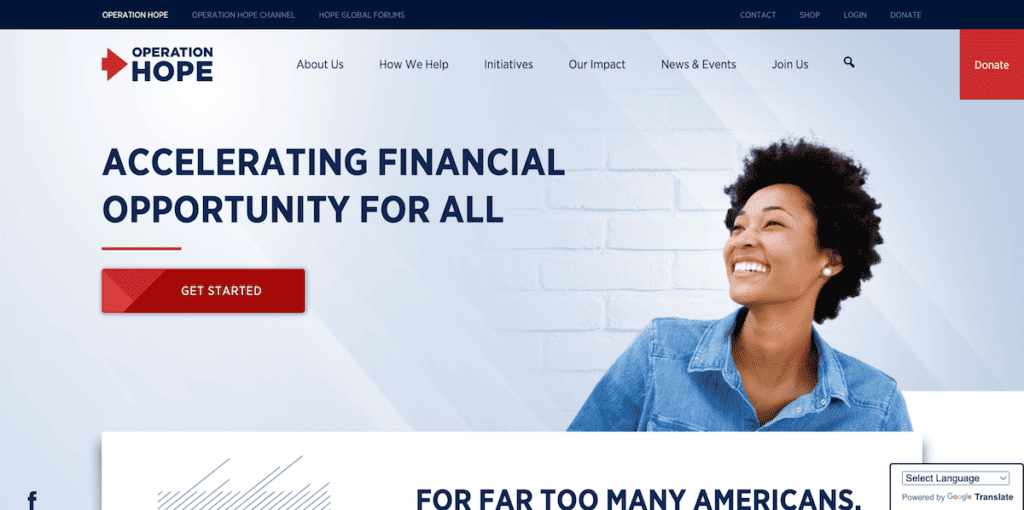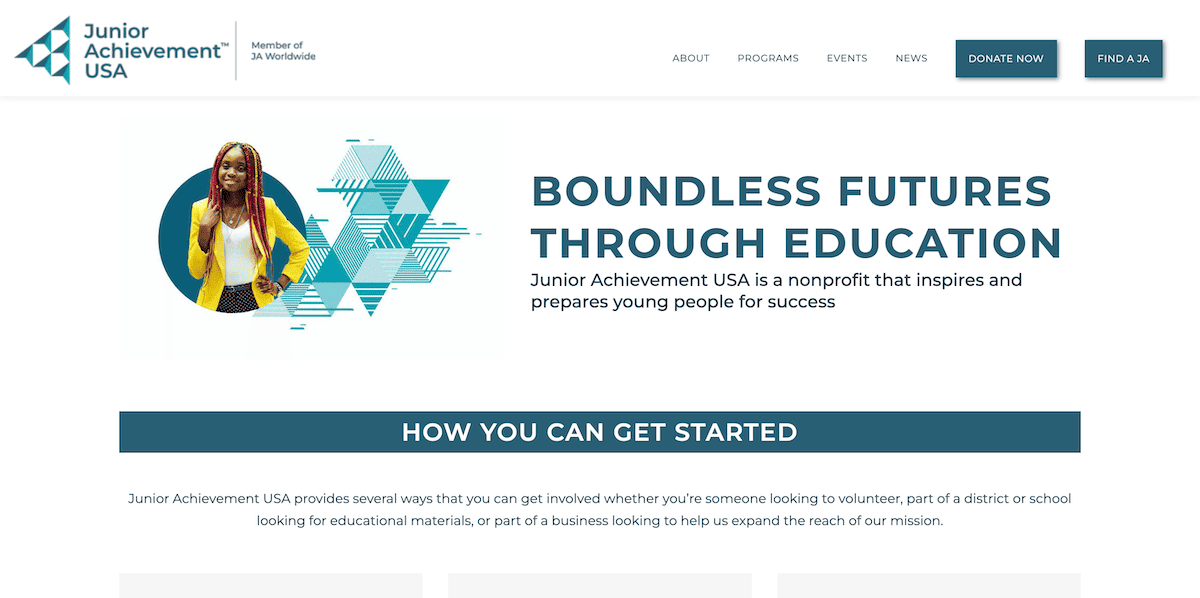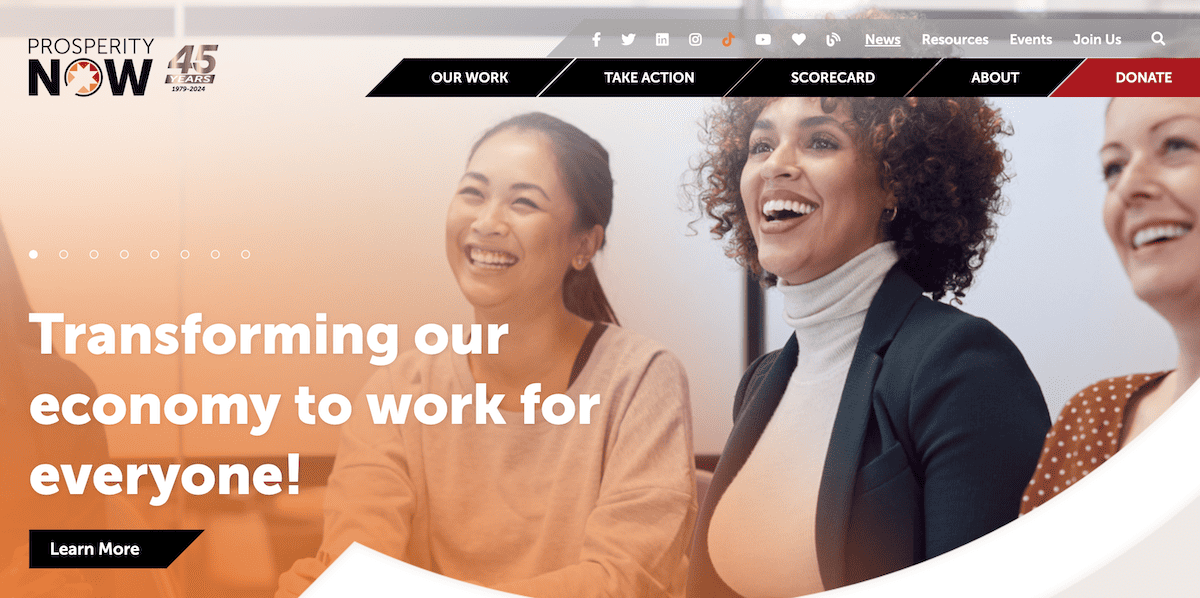The significance of financial literacy in today’s ever-changing economic environment is more crucial than ever. As individuals navigate through various financial stages, from managing day-to-day expenses to planning for retirement, the importance of possessing a sound understanding of financial principles cannot be understated.
Within this environment, financial literacy nonprofits play a pivotal role. These organizations are not just educational resources; they are pillars of community support, providing the tools and knowledge necessary for individuals to make informed financial decisions.
This post aims to shine a light on the financial literacy nonprofits that have dedicated themselves to this noble cause.
By offering a range of services, from workshops and one-on-one counseling to online resources and interactive tools, these nonprofits strive to demystify financial concepts and empower individuals with the knowledge to improve their financial well-being.
Whether addressing the needs of low-income families, students, or the elderly, these organizations tailor their programs to meet the unique challenges faced by different segments of the population.
The featured nonprofits stand out not only for their commitment to financial education but also for their innovative approaches to reaching and engaging their audiences.
Through their efforts, they are making significant strides in breaking down the barriers to financial understanding and accessibility.
Financial Literacy Nonprofits Making an Impact
1. Jump$tart Coalition for Personal Financial Literacy
As a leading voice among financial literacy nonprofits, Jump$tart Coalition is committed to improving the financial literacy of youth from pre-kindergarten through college. They provide a wealth of advocacy, research, and educational resources, aiming for a future where every individual possesses the financial capability to realize their dreams.
Jump$tart Coalition’s approach to improving financial literacy among the youth is multifaceted, incorporating advocacy, research, and educational initiatives.
The organization collaborates with a broad network of partners, including educational institutions, government agencies, and other financial education nonprofits, to advocate for policy changes and increased resources dedicated to financial education.
Their advocacy efforts are aimed at ensuring that financial literacy becomes a staple in educational curricula across the United States.
Research is another cornerstone of Jump$tart Coalition’s work.
The organization conducts and supports research to identify effective strategies for teaching financial literacy and to understand the financial behaviors and attitudes of young people.
This research informs their educational resources and initiatives, ensuring that they are evidence-based and tailored to meet the evolving needs of today’s youth.
Educationally, Jump$tart Coalition provides a plethora of resources designed to make learning about finance accessible and engaging for children and young adults.
These resources include interactive tools, games, and curriculum guides that educators and parents can utilize to teach financial concepts in a way that resonates with young learners.
Additionally, the coalition hosts events and workshops to further promote financial literacy and to provide hands-on learning experiences.
The impact of Jump$tart Coalition’s efforts can be seen in the increasing recognition of the importance of financial literacy in schools and among parents.
By championing the cause of financial education from a young age, the organization is paving the way for future generations to possess the financial capability needed to navigate life’s financial challenges and seize opportunities.
Through its comprehensive and collaborative approach, Jump$tart Coalition is making significant strides in creating a financially literate and empowered society.
2. National Foundation for Credit Counseling (NFCC)
NFCC stands out among financial literacy nonprofits for its comprehensive approach to promoting financial health. Offering a range of services, including debt counseling and financial education, NFCC has a longstanding commitment to helping individuals achieve financial stability and independence.
The organization’s certified counselors provide personalized advice and actionable strategies to help clients manage and reduce their debt. This service is not just about alleviating immediate financial stress; it’s about equipping individuals with the knowledge and tools they need to avoid similar pitfalls in the future.
By addressing the root causes of financial distress, the NFCC empowers clients to take control of their finances and make informed decisions.
In addition to debt counseling, the NFCC offers a broad spectrum of financial education programs.
These initiatives are designed to cater to a diverse range of needs, from basic budgeting skills to complex financial planning. The foundation’s educational resources are accessible and relevant, reflecting the realities of modern financial life.
Workshops, webinars, and online courses cover topics such as saving for retirement, understanding credit scores, and navigating housing decisions. These programs serve to demystify financial concepts and provide practical guidance that individuals can apply to their everyday lives.
The NFCC’s approach is grounded in the belief that financial education is not a one-size-fits-all solution. Instead, they focus on personalized counseling and tailored educational content to meet the unique circumstances and goals of each individual.
This client-centered philosophy extends to the NFCC’s commitment to accessibility and inclusivity, ensuring that financial counseling and education are available to all, regardless of income level or background.
3. Operation HOPE, Inc.

Distinguished for its efforts in underserved communities, Operation HOPE is a financial literacy nonprofit focusing on financial education and empowerment. Their programs cover critical areas such as credit management, homeownership preparation, and entrepreneurship, illustrating the diverse impact of financial literacy nonprofits.
The organization’s programs are thoughtfully designed to address various critical aspects of financial well-being. One of the key areas of focus is credit management, a cornerstone for financial stability.
Operation HOPE’s credit management programs aim to demystify credit scores, educate individuals on how to build and maintain good credit, and provide strategies for managing and reducing debt.
These initiatives are vital, as a healthy credit status opens doors to competitive interest rates, housing opportunities, and even job prospects.
Homeownership preparation is another significant aspect of Operation HOPE’s mission. Recognizing the role of homeownership in wealth building and community stability, the organization offers comprehensive education on the home-buying process.
From understanding mortgages to navigating the complexities of real estate transactions, these programs equip potential homebuyers with the knowledge and confidence needed to make informed decisions.
Moreover, Operation HOPE often provides ongoing support to ensure that individuals can sustain homeownership and avoid common pitfalls such as foreclosure.
Entrepreneurship is also a central theme in Operation HOPE’s approach to financial empowerment. By fostering entrepreneurial skills and providing resources for business development, the organization opens pathways to economic independence and community development.
These programs are particularly impactful in underserved areas, where access to traditional business education and financial resources can be limited. By empowering individuals to start and grow their own businesses, Operation HOPE not only stimulates local economies but also inspires a cycle of community improvement and innovation.
4. Global Financial Literacy Excellence Center (GFLEC)
GFLEC, operating within the George Washington University School of Business, emphasizes the role of research in advancing financial literacy. This nonprofit is dedicated to addressing societal financial issues through groundbreaking research, showcasing the varied approaches of financial literacy nonprofits.
One of the core aspects of GFLEC’s mission is to delve into the complex societal financial issues that plague various demographics. By conducting groundbreaking research, the center seeks to uncover the underlying causes of financial illiteracy and develop effective strategies to combat these challenges.
This research is not confined to one demographic or country but spans across different ages, socio-economic backgrounds, and nationalities, providing a comprehensive view of global financial literacy.
GFLEC’s approach to advancing financial literacy is multifaceted. Besides research, the center engages in a wide range of activities, including policy formulation, community outreach, and educational program development.
By working closely with policymakers, educators, and other stakeholders, GFLEC aims to create an environment where financial education is widely accessible and tailored to meet the needs of diverse populations.
5. Junior Achievement USA (JA)

JA is renowned among financial literacy nonprofits for equipping young people with the knowledge and skills needed for economic success. Their experiential learning programs cover work readiness, entrepreneurship, and, importantly, financial literacy, highlighting the transformative power of education.
JA’s programs are uniquely designed around experiential learning, which means that students learn by doing. This hands-on approach is implemented through a variety of activities, including simulations, role-playing, and real-world problem-solving tasks, which are all intended to provide a deeper understanding of economic concepts and practices.
By engaging students in this manner, JA makes learning more interactive, engaging, and, most importantly, relevant to their lives.
The curriculum offered by Junior Achievement spans three critical areas: work readiness, entrepreneurship, and financial literacy. The work readiness programs aim to prepare students for the workforce by teaching them about job hunting, resume writing, interviewing skills, and workplace behavior.
This prepares them for real-life work environments and helps them understand what is expected in professional settings.
Get our checklist of the best free nonprofit tools of 2024 sent directly to your inbox
6. My Money Workshop
This nonprofit stands out for its focus on delivering customized financial workshops to various groups, promoting financial responsibility and independence. My Money Workshop exemplifies how financial literacy nonprofits can tailor their offerings to meet specific community needs.
The key to My Money Workshop’s success lies in its commitment to understanding the specific financial challenges and objectives of various demographics. This can include students, young adults, low-income families, immigrants, or elderly individuals, each facing distinct financial situations.
By conducting needs assessments and engaging with community members, My Money Workshop identifies the unique financial literacy gaps within these groups and designs its workshops accordingly.
These customized financial workshops cover a broad spectrum of topics, such as budgeting, saving, debt management, investing, and understanding credit scores. The content and delivery of each workshop are tailored to the age, background, and financial literacy level of the participants.
For example, a workshop for high school students might focus on managing student loans and budgeting for college, while a session for retirees could concentrate on retirement planning and healthcare costs.
7. Financial Literacy for All (FL4All)
FL4All represents an ambitious effort among financial literacy nonprofits to integrate financial education into American culture. This initiative underscores the collective effort required to make financial literacy accessible to everyone, reinforcing the importance of collaboration among financial literacy nonprofits.
At the heart of FL4All is the belief that financial literacy should not be a privilege for the few but a fundamental right for all. This initiative highlights the collective effort and collaboration required among financial literacy nonprofits, educational institutions, government agencies, and the private sector to reach this goal.
By pooling resources, sharing knowledge, and working towards common objectives, these organizations can amplify their impact and reach a broader audience.
FL4All focuses on several key strategies to integrate financial education into American culture. These include developing and implementing national financial literacy standards, creating inclusive and accessible educational materials, and promoting innovative teaching methods that cater to diverse learning styles and backgrounds.
The initiative also emphasizes the importance of early financial education, advocating for the integration of financial literacy into school curricula from a young age.
8. Council for Economic Education (CEE)
CEE advocates for the inclusion of economics and financial literacy in school curriculums, providing resources and training to educators. This nonprofit’s work illuminates the foundational role that financial literacy nonprofits play in shaping future generations.
CEE’s mission extends beyond mere advocacy; it actively provides an array of resources and training programs for educators. By equipping teachers with the necessary tools, knowledge, and confidence to teach economics and financial literacy effectively, CEE is helping to shape a future where young people are better prepared to navigate the complexities of the modern financial world.
One of the hallmark offerings of the Council for Economic Education is its comprehensive suite of teaching materials, which includes textbooks, online resources, and interactive simulations.
These materials are designed to make the learning process engaging and relevant to students of various ages and backgrounds. CEE’s resources cover a wide range of topics from basic economic principles to more complex financial concepts like investing, credit management, and risk assessment.
9. Prosperity Now

Prosperity Now works to create economic opportunities that alleviate poverty, focusing on access to affordable financial services. This nonprofit’s approach to financial literacy emphasizes the connection between knowledge and economic empowerment.
The philosophy of Prosperity Now is grounded in the belief that financial literacy is more than just understanding money management; it’s about empowering individuals to make informed financial decisions that lead to economic stability and growth.
By focusing on the nexus between knowledge and economic empowerment, Prosperity Now aims to break the cycle of poverty and help individuals and families build a more prosperous future.
Prosperity Now’s approach to financial literacy involves a comprehensive suite of services and programs designed to address the multifaceted nature of financial insecurity.
These include initiatives to increase savings, improve credit, reduce debt, and invest in assets that can grow in value over time, such as education and housing.
By providing tools and resources that help people navigate the financial system, manage money effectively, and plan for the future, Prosperity Now seeks to build financial capability at the individual and community levels.
10. Credit.org
For over four decades, Credit.org has offered financial coaching and education to improve financial literacy at all societal levels. Their range of services, from debt management to financial education classes, showcases the comprehensive support financial literacy nonprofits can provide.
In spotlighting these financial literacy nonprofits, we celebrate the invaluable work being done to enhance financial understanding and capability across communities. By supporting their missions, we contribute to a world where financial literacy is not a privilege but a right accessible to all.
These organizations not only teach individuals how to manage their finances but also empower them to build better futures for themselves and their communities.






